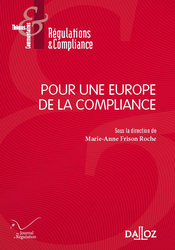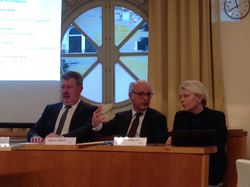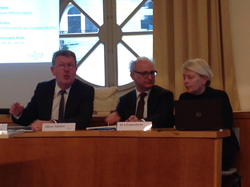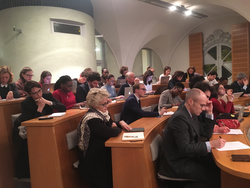The recent news
May 31, 2018
Breaking news

In the serie of conferences organized by the Journal of Regulation & Compliance (JoRC) on the topic of the Europe of Compliance, Jean-Jacques Daigre presented the general theme of this conference which took place on May 30, 2018 on the Compliance as an opportunity need to be seized by European companies.
By this, he made the general introduction to the conference that Xavier Musca, deputy director general of the Crédit Agricole Group, made on the way in which European companies of global dimension which had integrated this phenomenon could contribute to this Europe of Compliance, before Pierre Vimont reacted to these both speeches in a more institutional perspective.
Read below the restitution of this general presentation by Jean-Jacques Daigre.
May 30, 2018
Events : JoRC

April 14, 2018
Breaking news

April 14, 2018
Breaking news

March 27, 2018
Breaking news

March 20, 2018
Events : JoRC

March 19, 2018
Breaking news


